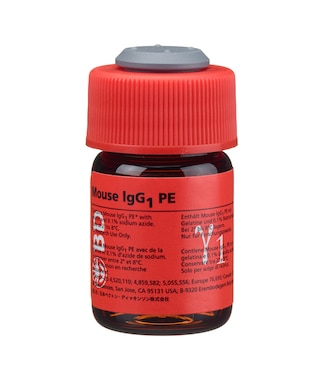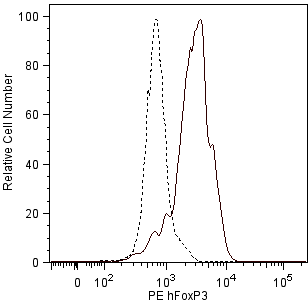-
Training
- Flow Cytometry Basic Training
-
Product-Based Training
- BD FACSDiscover™ S8 Cell Sorter Product Training
- Accuri C6 Plus Product-Based Training
- FACSAria Product Based Training
- FACSCanto Product-Based Training
- FACSLyric Product-Based Training
- FACSMelody Product-Based Training
- FACSymphony Product-Based Training
- HTS Product-Based Training
- LSRFortessa Product-Based Training
- Advanced Training
-
- BD FACSDiscover™ S8 Cell Sorter Product Training
- Accuri C6 Plus Product-Based Training
- FACSAria Product Based Training
- FACSCanto Product-Based Training
- FACSLyric Product-Based Training
- FACSMelody Product-Based Training
- FACSymphony Product-Based Training
- HTS Product-Based Training
- LSRFortessa Product-Based Training
- United States (English)
-
Change country/language
Old Browser
This page has been recently translated and is available in French now.
Looks like you're visiting us from {countryName}.
Would you like to stay on the current country site or be switched to your country?


.png)

Multicolor flow cytometric analysis of PI-16 expression on human peripheral blood CD4+CD25+CD127low T cells. Whole human peripheral blood was stained with the BD Pharmingen™ Human Regulatory T Cell Cocktail (Cat. No. 560249) containing FITC Mouse Anti-Human CD4, PE-Cy™7 Mouse Anti-Human CD25, and Alexa Fluor® 647 Mouse Anti-Human CD127 antibodies, and either PE Mouse IgG1, κ Isotype Control (Cat. No. 349043; Middle Panel) or PE Mouse Anti-Human PI-16 antibody (Cat. No. 563520; Right Panel). Erythrocytes were lysed with BD PharmLyse™ Lysing Buffer (Cat. No. 555899). Two-color flow cytometric contour plots show the correlated expression patterns of PI-16 (or Ig Isotype control staining) versus CD25 for CD4+CD25+CD127low-gated events (Left Panel) with the forward and side light-scatter characteristics of viable lymphocytes. Flow cytometric analysis was performed using a BD™ LSR II Flow Cytometer System.
.png)

BD Pharmingen™ PE Mouse anti-Human PI-16
.png)
Regulatory Status Legend
Any use of products other than the permitted use without the express written authorization of Becton, Dickinson and Company is strictly prohibited.
Preparation And Storage
Product Notices
- This reagent has been pre-diluted for use at the recommended Volume per Test. We typically use 1 × 10^6 cells in a 100-µl experimental sample (a test).
- An isotype control should be used at the same concentration as the antibody of interest.
- Caution: Sodium azide yields highly toxic hydrazoic acid under acidic conditions. Dilute azide compounds in running water before discarding to avoid accumulation of potentially explosive deposits in plumbing.
- Cy is a trademark of Amersham Biosciences Limited.
- Alexa Fluor® is a registered trademark of Molecular Probes, Inc., Eugene, OR.
- Source of all serum proteins is from USDA inspected abattoirs located in the United States.
- For fluorochrome spectra and suitable instrument settings, please refer to our Multicolor Flow Cytometry web page at www.bdbiosciences.com/colors.
- Please refer to www.bdbiosciences.com/us/s/resources for technical protocols.
Companion Products




The CRCBT-02-001 monoclonal antibody specifically binds to human CD364 which is also known as Peptidase inhibitor 16 (PI-16) or Protease inhibitor 16. PI-16 is a glycophosphatidylinositol-linked, 436 amino acid surface glycoprotein. It is a member of the cysteine-rich secretory protein (CRISP) family and is likewise known as CRISP9. PI-16 is a putative serine protease inhibitor and can serve as a binding protein for PSP94 (prostate secretory protein of 94 amino acids) termed PSPBP. Serum levels of PSP94 and PI-16 can reportedly serve as key targets for prostate cancer research. PI-16 is highly expressed by the activated/memory, FoxP3-bright subsets of regulatory T cells. PI-16-positive regulatory T cells expressed uniformly high levels of the chemokine receptors, CCR4 and CCR6, when compared with PI-16-negative T regulatory cells. The results suggest that the CCR4+CCR6+ regulatory T cells are capable of homing to inflammatory sites and regulating effector T cells such as CCR4+CCR6+ Th17-like cells. PI-16 is also expressed by subsets of memory CD4+ and CD8-bright T cells. It is not expressed by B cells or monocytes.

Development References (5)
-
Grose RH, Millard DJ, Mavrangelos C, et al. Comparison of blood and synovial fluid th17 and novel peptidase inhibitor 16 Treg cell subsets in juvenile idiopathic arthritis. J Rheumatol. 2012; 39(10):2021-2031. (Clone-specific: Flow cytometry). View Reference
-
Nicholson IC, Mavrangelos C, Bird DR, et al. PI16 is expressed by a subset of human memory Treg with enhanced migration to CCL17 and CCL20. Cell Immunol. 2012; 275(1-2):12-18. (Immunogen: Flow cytometry). View Reference
-
Reeves JR, Dulude H, Panchal C, Daigneault L, Ramnani DM. Prognostic value of prostate secretory protein of 94 amino acids and its binding protein after radical prostatectomy. Clin Cancer Res. 2006; 12(20 Pt 1):6018-6022. (Clone-specific). View Reference
-
Sadlon TJ, Wilkinson BG, Pederson S, et al. Genome-wide identification of human FOXP3 target genes in natural regulatory T cells. J Immunol. 2010; 185(2):1071-1081. (Biology). View Reference
-
Whitaker HC, Warren AY, Eeles R, Kote-Jarai Z, Neal DE. The potential value of microseminoprotein-beta as a prostate cancer biomarker and therapeutic target. Prostate. 2012; 70(3):333-340. (Biology). View Reference
Please refer to Support Documents for Quality Certificates
Global - Refer to manufacturer's instructions for use and related User Manuals and Technical data sheets before using this products as described
Comparisons, where applicable, are made against older BD Technology, manual methods or are general performance claims. Comparisons are not made against non-BD technologies, unless otherwise noted.
For Research Use Only. Not for use in diagnostic or therapeutic procedures.
Report a Site Issue
This form is intended to help us improve our website experience. For other support, please visit our Contact Us page.